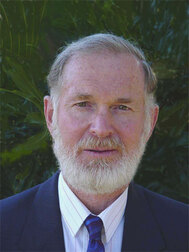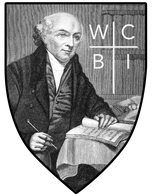Dr. Philip Stott

Dr. Philip Stott is the architect and engineer who constructed the massive 10,000 seater Auditorium at KwaSizabantu Mission. He is the author of Vital Questions, The Earth Our Home, the novel Another World and is joint author of How Did Turtle Get His Shell? as well as papers in technical journals and conference proceedings.
As a Civil Engineer, with B.Sc. (Honours) and M.Sc. degrees from Manchester University, he has been a lecturer at universities in Nigeria and South Africa. Philip Stott was awarded the Henry Adams Award for outstanding research in 1969 and the J.E. Jennings award (also for outstanding research) in both 2017 and 2018. While lecturing at the University of Witwatersrand, he studied Biology. He has also undertaken further research and studies in Mathematics and Astronomy with the University of South Africa and at the Applied Mathematics Department at the University of the Orange Free State. He has been awarded doctorates by Reformation International Theological Seminary and by the Central University of Technology, Bloemfontein. He has practiced as a consulting engineer with several South African consulting firms.
After many years as a staunch atheist, Philip Stott was converted to Christ in 1976. Following years of studying the conflicting claims of secular science and Scripture, he actively entered the Creation vs. Evolution debate in 1989 while teaching Mathematics and Science at KwaSizabantu Mission. Philip Stott has presented lectures and taken part in debates on the Science/Scripture controversy throughout Southern Africa, Russia, Eastern and Western Europe, the USA and Canada. Venues have included the European Centre for Nuclear Research and the Russian Academy of Sciences.
When the Iron Curtain collapsed and the Soviet Union disbanded, involvement in helping children suffering the consequences of the Chernobyl nuclear disaster led to opportunities to lecture on Creation to state institutions including universities and colleges throughout Russia. These lectures became so popular that up to six different venues had to be fitted into one day. Associations with formerly “underground” churches allowed many of these opportunities to become openings for evangelisation. At present Philip Stott holds a research fellowship at the Central University of Technology in Bloemfontein.
Websites:
www.StottBooks.com
www.reformation.edu
“Let the elders who rule well be considered worthy of double honour, especially those who labour in preaching and teaching” 1 Timothy 5:17
As a Civil Engineer, with B.Sc. (Honours) and M.Sc. degrees from Manchester University, he has been a lecturer at universities in Nigeria and South Africa. Philip Stott was awarded the Henry Adams Award for outstanding research in 1969 and the J.E. Jennings award (also for outstanding research) in both 2017 and 2018. While lecturing at the University of Witwatersrand, he studied Biology. He has also undertaken further research and studies in Mathematics and Astronomy with the University of South Africa and at the Applied Mathematics Department at the University of the Orange Free State. He has been awarded doctorates by Reformation International Theological Seminary and by the Central University of Technology, Bloemfontein. He has practiced as a consulting engineer with several South African consulting firms.
After many years as a staunch atheist, Philip Stott was converted to Christ in 1976. Following years of studying the conflicting claims of secular science and Scripture, he actively entered the Creation vs. Evolution debate in 1989 while teaching Mathematics and Science at KwaSizabantu Mission. Philip Stott has presented lectures and taken part in debates on the Science/Scripture controversy throughout Southern Africa, Russia, Eastern and Western Europe, the USA and Canada. Venues have included the European Centre for Nuclear Research and the Russian Academy of Sciences.
When the Iron Curtain collapsed and the Soviet Union disbanded, involvement in helping children suffering the consequences of the Chernobyl nuclear disaster led to opportunities to lecture on Creation to state institutions including universities and colleges throughout Russia. These lectures became so popular that up to six different venues had to be fitted into one day. Associations with formerly “underground” churches allowed many of these opportunities to become openings for evangelisation. At present Philip Stott holds a research fellowship at the Central University of Technology in Bloemfontein.
Websites:
www.StottBooks.com
www.reformation.edu
“Let the elders who rule well be considered worthy of double honour, especially those who labour in preaching and teaching” 1 Timothy 5:17
